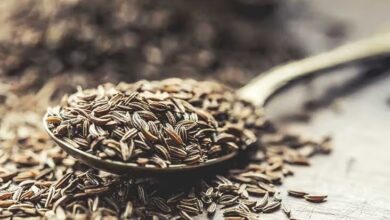The Fertility Diet: 12 Foods That Can Encourage Women to Become Mothers
A woman’s reproductive health is crucial to the delicate and complex process of becoming pregnant. Optimizing female fertility may be greatly aided by a diet rich in nutrients and well-balanced, even in the absence of medical procedures. Let’s examine the key components of a fertility-friendly diet that may enable women to become mothers, as explained by Dr. Rupali Tambe, a fertility expert at Nova IVF Pune.

Rich in nutrients foods: The significance of a diet high in nutrients in the pursuit of fertility cannot be emphasized. To guarantee that your diet contains a wide range of vitamins, minerals, and antioxidants, include a variety of colorful fruits and vegetables. These components are essential for reproductive health and general well-being.
Good Fats: Include foods high in good fats in your diet, such as olive oil, avocados, almonds, and seeds. These lipids are essential for the synthesis and regulation of hormones, both of which are vital for fertility. Almonds, walnuts, flaxseed, and chia seeds are included as sources of healthy fat. Refined oil is something to stay away from.
Lean Proteins: Choose protein sources that are low in fat, such as fish, chicken, beans, and lentils. In addition to being necessary for tissue growth and repair, protein also helps to maintain the hormonal balance that is vital for reproductive health. Because fish has a high omega-3 content, eating two or more meals per week has been demonstrated to boost fertility. Steer clear of red meat.
Complex Carbohydrates: Select complex carbs over refined ones when making dietary choices. Oats, quinoa, and whole grains all contribute to blood sugar regulation and long-lasting energy. Blood sugar stability is essential for both fertility and hormonal homeostasis.
Foods high in iron: Iron is essential for healthy reproduction. Incorporate meals high in iron, such as lean meats, beans, spinach, and fortified cereals, to ward against anemia, which has been shown to impair fertility.
Folate and Folic Acid: In early pregnancy, a sufficient consumption of folate—found in leafy greens, citrus fruits, and legumes—is essential to avoid neural tube abnormalities. Women who want to get pregnant are often advised to take folic acid supplements.
Dairy or Dairy substitutes: Dairy or fortified dairy substitutes are great providers of calcium, which is necessary for healthy reproduction. Add dairy products, yoghurt, or plant-based substitutes to enhance general fertility and bone health. Skim milk is not as good as full cream milk when it comes to boosting fertility.
Hydration: Maintaining enough hydration is essential for good health in general, particularly reproductive health. Water promotes healthy digestion and nutritional absorption as well as the consistency of cervical mucus, which is necessary for conception.
Eat Less Processed Foods: Processed foods often have toxic trans fats, additives, and high sugar content, all of which may exacerbate hormone imbalances and inflammation. Reducing the amount of processed food consumed promotes good reproductive health in general. Consuming processed and fast meals has been shown to almost eliminate fertility by 40–50%.
Moderate Consumption of Alcohol and Caffeine: Although moderate caffeine intake is usually seen as safe, excessive consumption may affect fertility. Similarly, it’s best to restrict alcohol consumption since too much of it might throw off hormone balance. For both men and women, smoking, tobacco use, or any kind of addiction, is harmful to fertility.
Mindful Eating and Weight Management: Two of the most important parts of fertility are mindful eating and keeping a healthy weight. The menstrual cycle may be disturbed and hormonal balance affected by being underweight or overweight.
Herbal Teas and Supplements: There is some belief that some herbal teas, such as red raspberry leaf tea, might aid with conception. Nonetheless, because herbal supplements might differ in terms of safety and effectiveness, it is important to speak with a healthcare professional before using them.
In conclusion, keep in mind that every individual is different and that seeking individualized guidance from a nutritionist or healthcare expert may be very helpful while navigating the process of becoming pregnant. Gain the information that nutrition is a key factor in fostering the possibility for a new life and starting along the wonderful journey of parenthood.







